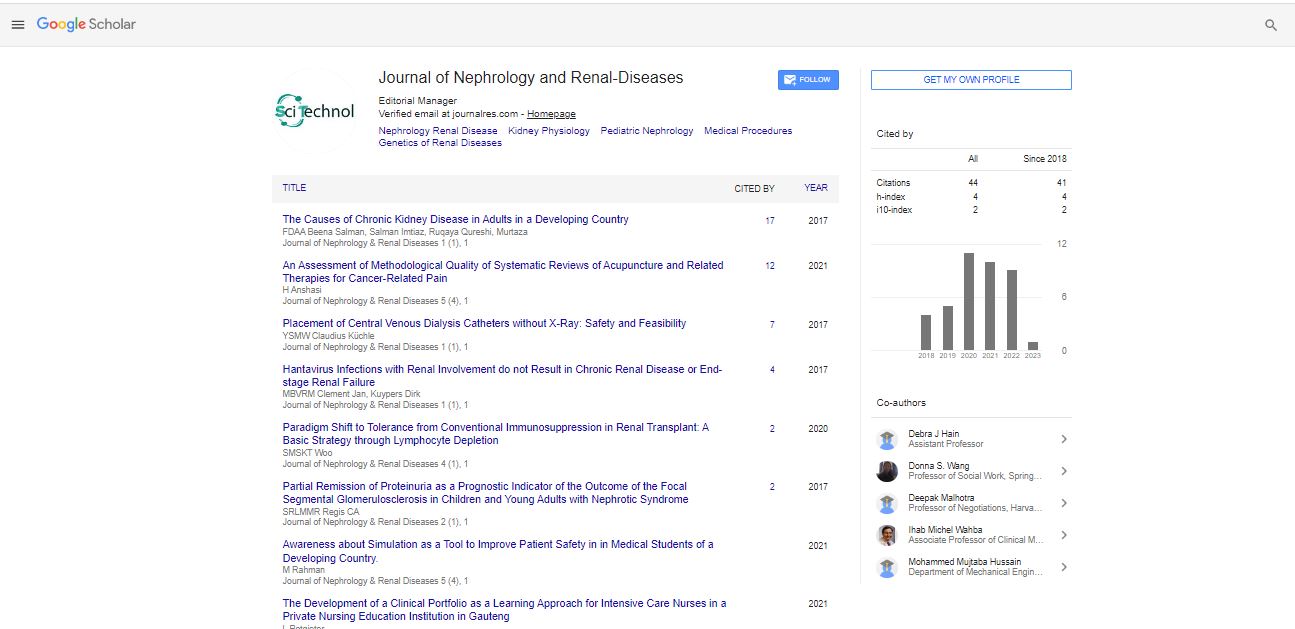Short Communication, J Nephrol Ren Dis Vol: 5 Issue: 4
An Assessment of Methodological Quality of Systematic Reviews of Acupuncture and Related Therapies for Cancer-Related Pain
Huda Anshasi
The University of Jordan, School of Nursing, Amman, Jordan
Abstract
Purpose: The purpose of this study is to summarize and evaluate
the methodological quality of systematic reviews and meta-analyses
papers on the acupuncture and related therapies for management
of cancer-related pain.
Methods: A comprehensive search on multiple databases was
performed using Assessing the Methodological
Quality of Systematic Reviews (AMSTAR).
Results: Fourteen systematic reviews published between 2005 and
2017 were eligible for inclusion. The consensus across the included
reviews was that acupuncture and related therapies alone did not
have superior pain-relieving effects as compared with analgesic
administration using various validated pain scales. However, as
compared with analgesic administration alone, acupuncture and
related therapies plus analgesics resulted in
Reduced cancer related-pain.
Conclusion: The study findings emphasized that acupuncture and
related therapies alone did not have clinically significant effects
at cancer-related pain reduction as compared with analgesic
administration alone. Clinicians may consider acupuncture and
related therapies as adjunctive therapies for cancer-related pain
management, in particular, when pain control is unsatisfactory
under analgesics alone. Furthermore, the researchers should
Conduct the SRs and meta-analyses according to the Amstar and
Prisma.
Keywords: Nephrology & Renal Diseases
Purpose: The purpose of this study is to summarize and evaluate the methodological quality of systematic reviews and meta-analyses papers on the acupuncture and related therapies for management of cancer-related pain. Methods: A comprehensive search on multiple databases was performed using Assessing the Methodological Quality of Systematic Reviews (AMSTAR). Results: Fourteen systematic reviews published between 2005 and 2017 were eligible for inclusion. The consensus across the included reviews was that acupuncture and related therapies alone did not have superior pain-relieving effects as compared with analgesic administration using various validated pain scales. However, as compared with analgesic administration alone, acupuncture and related therapies plus analgesics resulted in Reduced cancer related-pain. Conclusion: The study findings emphasized that acupuncture and related therapies alone did not have clinically significant effects at cancer-related pain reduction as compared with analgesic administration alone. Clinicians may consider acupuncture and related therapies as adjunctive therapies for cancer-related pain management, in particular, when pain control is unsatisfactory under analgesics alone. Furthermore, the researchers should Conduct the SRs and meta-analyses according to the Amstar and Prisma
 Spanish
Spanish  Chinese
Chinese  Russian
Russian  German
German  French
French  Japanese
Japanese  Portuguese
Portuguese  Hindi
Hindi 
